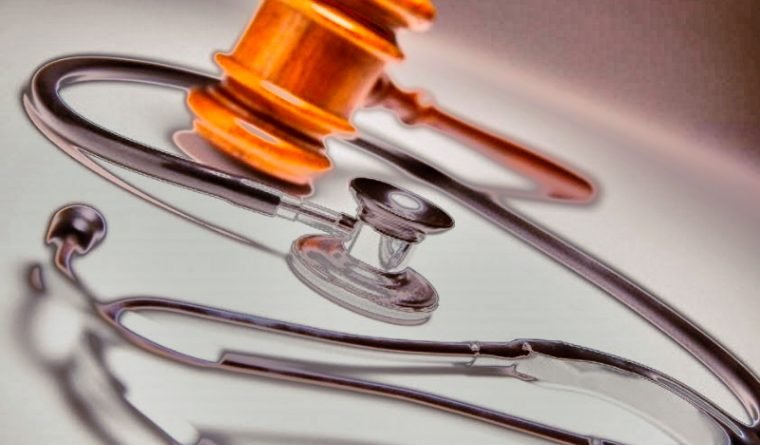Can You Take Legal Action For Medical Malpractice If You Signed A Waiver?
Medical procedures, even routine ones, come with inherent risks. To minimize these risks and protect themselves from liability, healthcare providers often ask patients to sign waivers before treatment. These waivers are legal documents that acknowledge the patient’s awareness of the potential risks and their agreement to release the provider from responsibility for certain outcomes. However, the presence of a signed waiver raises an important question: can you still file a lawsuit for medical malpractice if you signed a waiver?
The answer, like many legal matters, isn’t a simple yes or no. While waivers carry weight in court, they don’t necessarily prevent legal action altogether. Understanding the limitations and exceptions associated with medical waivers is crucial for anyone considering pursuing a medical malpractice claim after signing one.
The Impact of Waivers on Medical Malpractice Claims
It’s important to understand that waivers aren’t foolproof protections against lawsuits. Their main purpose is to shield healthcare providers from liability for the known risks associated with a procedure, as long as they adhere to the established standard of care. This standard refers to the level of skill and care that a reasonably competent healthcare professional would provide under similar circumstances.
However, waivers have limitations that can be challenged in medical malpractice cases:
- Scope of coverage: Waivers typically outline specific risks linked to the procedure. They don’t absolve providers of liability for unforeseen complications or harm resulting from negligence. For instance, a waiver for a routine surgery may not cover complications arising from an improperly administered anesthetic.
- Unconscionability: Courts may deem a waiver unfair or misleading if it’s drafted in a way that unfairly favors the provider or if it’s presented under duress. Waivers written in complex legal language or presented in coercive situations might fall into this category.
- Gross negligence: Waivers cannot protect providers from the consequences of their own extreme misconduct. This includes situations where the provider shows reckless disregard for patient safety or deliberately causes harm. For example, performing surgery on the wrong body part or leaving surgical instruments inside the patient would likely not be covered by a waiver.
Exceptions to Waiver Protection
There are several situations where a signed waiver might not prevent legal action for medical malpractice:
- Gross negligence: As mentioned before, if a healthcare provider demonstrates extreme carelessness or deliberate disregard for patient safety, a waiver will not shield them from legal consequences. This could include using outdated or defective equipment, failing to diagnose a critical condition, or performing a procedure while under the influence of drugs or alcohol.
- Unauthorized procedures: If a medical professional performs a procedure without obtaining informed consent from the patient, the waiver becomes irrelevant. Informed consent requires the patient to fully understand the risks and benefits of the procedure before agreeing to it. Performing unauthorized procedures violates patient autonomy and ethical medical practice.
- Fraudulent misrepresentation: If a healthcare provider misleads the patient about the risks involved in the procedure, the waiver loses its validity. This could involve downplaying potential complications, omitting crucial information, or pressuring the patient into signing without proper understanding.
- Minors: Waivers signed by minors are generally not enforceable because they lack the legal capacity to enter into binding contracts. In such cases, the parents or guardians would be responsible for providing informed consent, and any harm caused by negligence would still be actionable.
Importance of Consulting a Lawyer
Navigating the complexities of medical malpractice cases involving waivers requires the expertise of a qualified legal professional. An experienced lawyer can:
- Assess the validity of the waiver: They can analyze the language, scope, and circumstances surrounding the signing to determine its enforceability in court.
- Evaluate the strength of your case: By reviewing your medical records and gathering evidence, they can assess whether your case falls under an exception to the waiver’s protection, such as gross negligence or unauthorized procedures.
- Guide you through the legal process: Navigating the complexities of medical malpractice lawsuits requires specialized knowledge and experience. A lawyer can handle communication with healthcare providers, insurance companies, and the court system, ensuring your rights are protected throughout the process.
While signing a waiver before a medical procedure might seem like a straightforward agreement, it’s crucial to understand that it doesn’t necessarily prevent you from seeking legal recourse if you experience harm due to medical negligence. The limitations of waivers, combined with exceptions like gross negligence and unauthorized procedures, create avenues for pursuing justice even if you signed a document.
Remember, medical malpractice cases are complex and require careful evaluation. If you believe you have been a victim of medical negligence, even after signing a waiver, consulting with a qualified medical malpractice attorney is the first step towards understanding your rights and exploring potential legal options. They can provide invaluable guidance and support throughout the process of seeking compensation.

